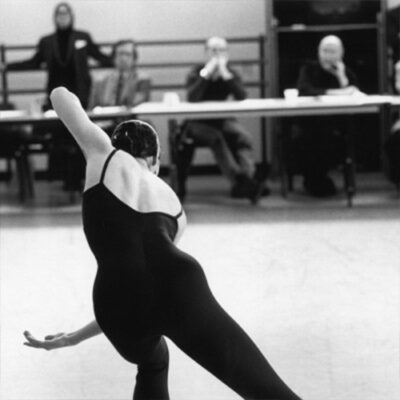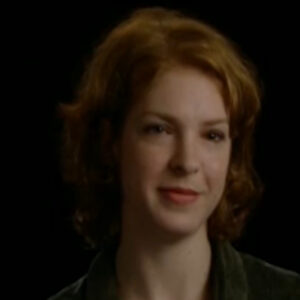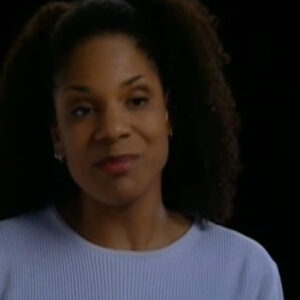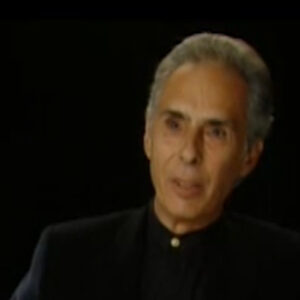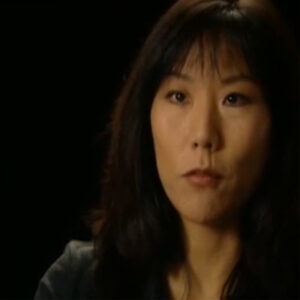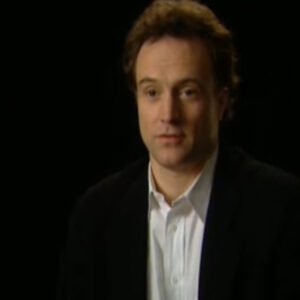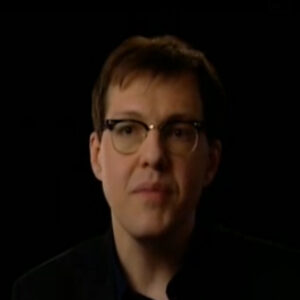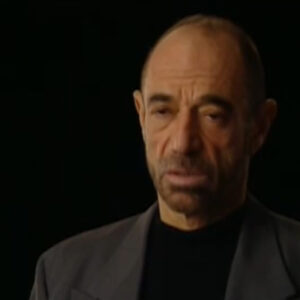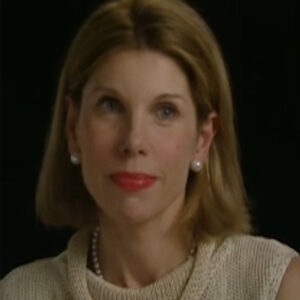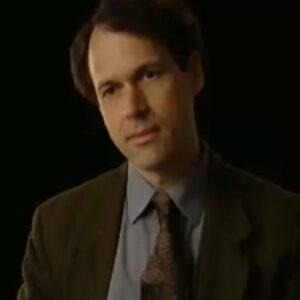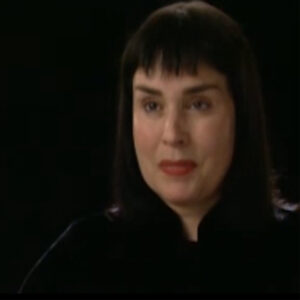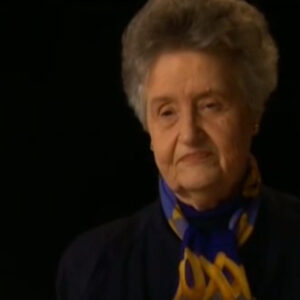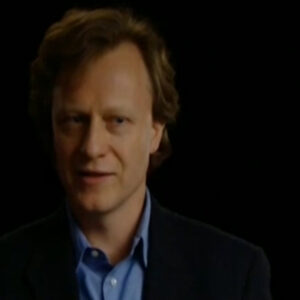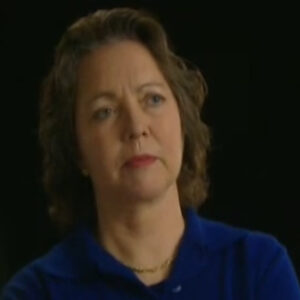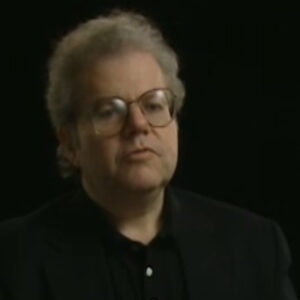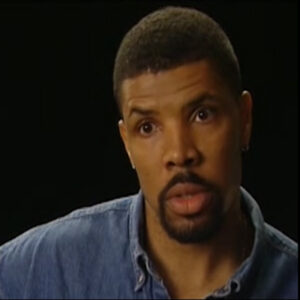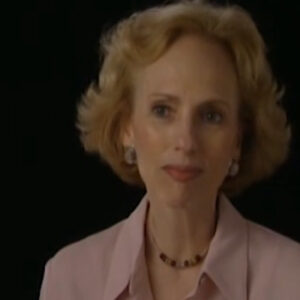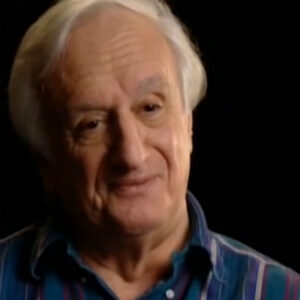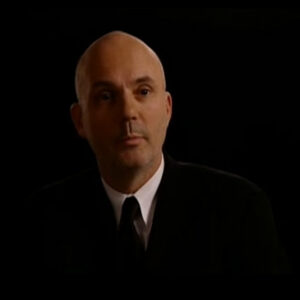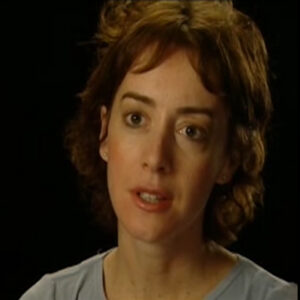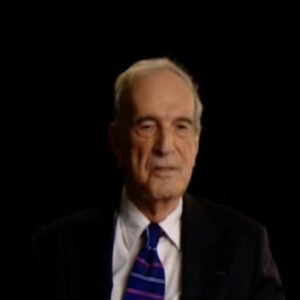Speaker We’ll talk about your decision to you, your what you knew about the school, you know, what your goals were, where you were at that point came one year horizon.
Speaker Well, I was I’m from California, so I was at my early training was in the in the California public school system music system. Much then in those days was just marvelous. I mean, there were orchestras and everywhere and wonderful training. And so I play the flute.
Speaker And I started the flute in the beginning. Win’s class there and. Fell in love with it. So it was kind of vague, you know, all I really knew was that I. That’s what I wanted to do. I guess I was meant to do it. Minute the fleet was put in my hand and it was just this is it. This is it for my life. My parents were adorable. They were just totally behind me and ready to support me. And so but still, I wanted to go to university. I was quite young when I graduated from high school, barely 17 years old. And so I went to. The University of Southern California, which then had a really wonderful music school. I guess they still do. And while I was there, Julius Baker came to town to play and a wonderful teacher at school said, you know, Polly, you should really play for him. He’s a friend of mine and just play for him. So I did. I went play and he said, you have to come to Juilliard. You just have to come to Juilliard.
Speaker And I started crying. Oh, no.
Speaker That means I have to leave all this wonderful place in my boyfriend and everything. Go to New York. It.
Speaker Yes. But you must do so. That’s how sort of the Juilliard was a school that I guess all of us out there. There’s probably more of a separation. There was more of a separation between coasts and between countries. Then when I was a young player than there is now, because everyone’s so global now, kids go everywhere to classes and know more about their pig compatriots, Serb colleagues, musical colleagues in other countries. But for me, coming to New York was really a big deal.
Speaker So. I auditioned. They accepted me, which amazed me. And. There I was in New York City and trying to find a place to live.
Speaker Freezing. Because being in California, nobody told me how cold it got here and and I and nobody told me it in September, I had to buy myself a pair of socks because, you know, you don’t ever do that in California.
Speaker That I’d be called here and I’d have to wear a coat and things. So I was really a babe in the woods when I came. And they were pretty wildwoods in New York then. And this is really bad.
Speaker So you were talking a bit about New York. And then what was Giuliani like, the Clairemont atmosphere, the.
Speaker Well, let’s see. Can I say this, being a Californian and coming to New York, everything seemed tremendously intends to me. I know now that if people say that the Lincoln Center building is much more intense in certain ways then than it was up on Claremont Avenue. To me, it was it was tremendously intense because of the richness also of the surroundings, the fact that Columbia University was so close.
Speaker Union Theological Seminary, seven, Union Theological Seminary right across the street. We looked out on them. One wonderful these Gothic structures. And and there was a kind of a there was International House across the street. There was a community of intellectuals and artists, which I found extremely. Exciting and wonderful. I kind of went out wandering around with my eyes and ears open for quite a while and trying to Juilliard. Now, of course, has dormitories, which makes a big difference and helps a lot when you’re a young student, especially coming from another environment besides New York, coming from the Midwest, coming from another country to be able to come into the city and have a community of artists around you is a wonderful thing, a great gift. I kept wishing there had been something like this when I first came because I wound up renting a room from a woman who at the moment I started to practice.
Speaker She said, Oh, look, my dear, you can’t do that. I said, What flute player? Of course I have to practice. Oh, but it’s driving me crazy at all.
Speaker So I was out of there pretty quick and I had to find a new place to live.
Speaker And so there are a lot of kind of there were challenges, but they were always I always felt. So I think when you’re when you’re young, you when you’re really young, you kind of feel in a certain way. I have time. I’m you have a feeling sort of your a in a certain way you’re where you’re willing to take chances are you just think, well, I’ll do that. I’ll do that later. I’ll be comfortable. I’ll be happy later. I’ll find happiness later.
Speaker Right now, what I’ve got to do is I kind of got my lesson ready for Mr. Baker because that’s what I would live for us is my lessons with him every week. I knew that when I went to his studio that everything I’d worked on during the week, everything I’d learned and. Try to absorb would find some. There would be some answers for all the questions that have to say, I think there’s so many questions there, just you kind of start realizing what they are and and you try to find a young person trusted to find. We were trying to find out who we were. And there were many ways that the Juilliard gave us to find out. One of the most challenging things I found was that so much in a conservatory is left to the individual, a young artist there. A conservatory is to conserve great traditions. And there are kind of like there are two kinds of oral traditions. They’re spelled differently. The oral tradition of hearing. When you go into a place, you start. If you use your years in a place like the Juilliard, you hear not only the great playing of the artists teachers, but your your colleagues or your students around you who are just playing their instruments as well as they can be played just amazingly, sometimes quite daunting. If you come from an environment where there isn’t that level of playing, some of the students I met were so advanced so, so great at what they did.
Speaker They already had such a flying start on me that I was kind of thinking, OK, if I can learn something from this, just keep listening. And then the oral tradition, meaning spoken words. And that’s where the individual studio teachers are crucial for a young artist and a conservatory situation, because it’s that one on one.
Speaker There you are playing for one other person. And although sometimes there are classes with other students, they’re offering their own kind of vibes, whatever, they’re either competitive or really supportive or illuminating because of the way they’re listening or something they might say. It’s the words of the teacher, I think, which are the epiphanies for the student. And if it’s a great teacher, there are many epiphanies there. Many times that a student will say, oh.
Speaker Oh, and then be able to go home and go back to the studio and shut the door. Because that’s the time of prayer. The door is closed and you’re praying, please, Lord, let me be able to do this. Let me understand. And let me be able to do this so that I can praise you when I go on the stage. That’s the time of praise then. But. That tradition often, which I think now that the time I was there, in a way, I’m kind of a link to the 19th century because I was a young person at the time when teachers at the Juilliard knew a lot of the great artists of the turn of the century. And so they were speaking about their teachers.
Speaker I even got to play with Edward Storm on the great pianists who worked with Schoenberg. And he played a performance of Pure, although now shown that we did estimate with some student members of the group. And so there was that oral tradition both ways with the Ehrsson the words, he would say something. And there we were in Vienna. We if we if if we listened and if we kept ourselves. Open for that. That’s the most important challenge, too, I think, for young students at a place like the Juilliard, which is so intense. It’s to try to leave the fear behind. Leave all the barriers behind and try to be as open as possible to the wonders which are there and which the teachers sometimes.
Speaker Now, being a teacher myself, I realize sometimes they were shy.
Speaker Sometimes they had a hard time telling us what it was they wanted us to know. And we’re trying to find the way that we would be open. So. Finding an open face and open ears is a great gift to a teacher, too. We used to talk about that when we were together, too.
Speaker How can I understand what it is really all we see?
Speaker What he thinks there was a librettist named Bernard Stamler who gave a gave a course in modern poetry there and. He loved Gerard Manley Hopkins.
Speaker So the course is mostly about that and some of us got it and some of us didn’t. But the ones who were just, OK, we’re going to stick with him. We’re going to stick with him. It’s two o’clock in the afternoon. We’ve got to practice and we’ve been rehearsing all morning. But, boy, we’re going to wait till he gets through this in stress and Inchcape stuff. We cannot know what he’s talking about.
Speaker And that had profound effect on any of us who did stick with him because it’s all about music. It’s such a it’s one step technophiles steps.
Speaker To the side or forward or backward, a step back to maybe look or a step to the side to examine something.
Speaker Oh, bleep.
Speaker My answer to that is, well, if it is incredibly evocative of what that time was and you’re talking about all I’ve thought about a lot, which not that many people spoke to, but know when you’re in a school with that kind of a legacy, it seems to have affected you quite a great. Definitely. I mean, how where what what what was what was your awareness, his legacy and how did it come to you? People talk about it while you were there. Was it just knowing. Was it. But you sound like you’ve got that that sense of those sort of hallowed halls and also the incredible people that were there even while you were there, that you didn’t know what was to come for them necessarily. That’s true. Including yourself. Yeah. I had no idea.
Speaker Yes, with that, the building had great vibes. The building is full of.
Speaker The people who had come before me, one needed to only walk down the hall and see the doorways open and close and know what was going on inside and. You could really you could feel it in the building. And a place like that. The orchestra rehearsal studio. High up.
Speaker Filled with light. You know, I don’t even remember now whether it was actual sunlight, it was just psychic light. It was just filled with the energy of the orchestra and the amazing Joel Morrell, who was conducting the orchestra then. And the man was so intense and so frightening sometimes because he had his temper, he would yell, he would suddenly burst out and say something that clearly to us or most of us was very mixed. It was from him. It was for us so that we would learn. But still, he was often speaking to us of what he was thinking or going through or deciding for himself. And. Well, I’ll never forget one. One day we were playing. Daphnis and Chloe of Maurice Ravel, which has an immortal moment. The whole piece, of course is a seminal piece, is a piece that has affected every composer’s work since it was written because of its orchestration, but its incredible beauty and its evocative quality. It’s it’s because it’s about the nymph Chloe and Daphnis and dancing and miming the story of their love and Bach and all at the end. It’s just one of Ravel’s greatest works. And there’s a moment before.
Speaker The great flute solo, which is Dafnis, is Dance. It’s a flute solo that every every young flute is practices. Everyone hopes to play it. Some wind up in a situation where they play it many times. And some like me, although I didn’t know it then I thought I would play the solo from Toughness and Glory. Many times in my life, because I was sure to be playing in an orchestra. But that was not the path I chose. It chose it. Pat, later. Anyway, I’m digressing.
Speaker Before the flute solo, there’s a moment, a magical moment in the orchestra where they become very soft. They descend into this magic place and the violins have a sort of a gesture.
Speaker They make it sort of. There’s beautiful old boso and then the strings go Toddie body.
Speaker I know you like that.
Speaker That’s the interval and the violence to this end kept trying to get the young violinist to do this again. He did it again and then finally threw down his baton and he said, these days are over.
Speaker There are over. You do not understand going to places because this time his finish is over. And we were shocked. We we we sat back and I just it was a moment of intense silence from him and he was shaking his head. But of course, we those of us who were had ears to hear learn something very important that day. Yes, those days were over that time before the First World War in Paris when Roosevelt was riding Daphnis and Chloe, that kind of a gesture was not being written anymore. And for us to be able to understand how to play it, we had to know a lot about what was happening then and to understand him and what he was trying to do. So he was maybe putting a big responsibility on our shoulders as young artists. By saying that to us, you were. Overcome, I’ve never forgotten that because in my own teaching, now I can carry it on, that’s this tradition that he gave me a gift of his life, really with that moment. A young flute player sitting in the orchestra. He one man gave me a word, a gesture, a sound, an idea of a sound, a poetic idea that I as an artist have a responsibility really to carry on to the young people.
Speaker I can maybe try to explain part of it, too, so that they can then teach their students at the Juilliard School.
Speaker Two thousand fifty.
Speaker About those kind of moments when you say, you know, it’s over and it is over and you have to know a lot. How does one combine this incredible need to know about all these periods of music and yet. Be with your instrument enough to play it well.
Speaker Is this the whole time it is just kind of waiting for people, I mean, you know, I’m not sure that everybody I mean, I guess I should say I am sure that all the students, New York now, where I’ve spent my last year, do not know that.
Speaker I do not know how important it is to know the other things besides the master of their own instrument.
Speaker Yeah, that’s kind of a sad thing that’s happened because the music performances, in a way become. Compartmentalized. And the professional aspects of it have taken over too much. I was felt that at Juilliard, coming from an environment in which I come from an artistic family.
Speaker Music was part of a big, very big picture. Wait a minute. It’s coming back to another way of looking at it.
Speaker Just kind of being here during the 19th century and the beginning of the 20th century, musicians did a lot of other things besides play their instruments. First of all, they didn’t fly everywhere. They took trains. They had to have time and they had time to read and they had to have time to reflect.
Speaker Now things go so fast and the kind of commercial aspects of what we do have taken over and become much, in my opinion, much more, much too much to the fore so that we’ve lost the kind of delight in art that many of us had when we were young and which many of us are trying to stick to, even though we very often feel that we’re going against the grain. I feel that there’s a professional aspect to music, the craft, which is very, very important for any young artist to learn as many wonderful poetic ideas as you have. There’s no way that you’re going to be able to communicate them to another person unless you are a master of your craft, your instrument, your voice, your body, whatever you use to express those ideas for whether they come free from you, whether you are improvising, whether you’re saying something that somebody wrote down 100 hundred years ago, you still need to be able to go beyond the limits of whatever your medium is so that the art will live and be alive then the composers are than Mozart is alive in the room when you’re playing a piece of Mozart and you bring his music alive. There he is. He’s he’s. He’s with you. He’s with all of us. That is important and that is ageless. That that anyone who wants to do something well must learn. But then there are, I think, two separate channels. There’s art and then there is career and they are separate to me. Sometimes they join. And that’s a wonderful thing when they do sometimes craft and genius joint and a composer. And then we have a Mozart. Sometimes craft goes along a long way and it’s a wonderful composer or genius is there without the craft. And so it’s impossible to have the whole picture. Or you can see part of the picture and you appreciate it for what it is. But the great genius is come along every few, every century. But these days I’m sort of digressing with this, too. These days, the sort of career and art have become two separate. In my opinion. And so Art, an artist who really wants to be thoughtful and take time, sometimes feels very conflicted because the mastery of the instrument. Yes, is very important. But the real love and appreciation on the part of the public for what art is and the experience of art, which is not always entertaining, not always pleasant, sometimes very deeply upsetting, the willingness to open themselves up to that is not here so much as it was before. However, the thing that I just realized was here we are realizing that classical music is part of a very big global picture of other arts and cultures and music, which are equally important. That’s what’s happening at the Juilliard now, I think, and what’s happening in the young players now. When I hear the great young violinists I’ve heard recently coming out of the Juilliard School, they are almost without exception the ones I’ve heard of, fascinated with other cultures and how what they’re playing is going to fit in, how it’s going to fit in, and how they can make a new music in a way, a kind of global music, which includes.
Speaker Improvisation of a certain kind. Native American culture, jazz, all sorts of things are entering into their very rich stew of what they are preparing themselves to do as mature artists. And so, in a way, they’re creating a whole kind of new artistic climate, which I find tremendously exciting to now witness as a teacher, because I see my students there not just on a one course. They don’t have the also the kind of sight of what’s possible for them that a lot of us did then because things were much more organized in in the classical music world. I’m speaking about classical music because that was what I was involved with, although I was a maverick, you know.
Speaker I mean, if I’d been a violinist, I would have had a much easier path.
Speaker But here was a flute player decided to be a soloist. That was. So in a way, I’m sort of I’m not a good one to talk about what the great traditions were at Juilliard, because I was never I just sort of departed from what I was just going along there trying to do.
Speaker And I’m just moving here. I was sitting on a freaky. I was like, well, this is what I find.
Speaker But, you know, it’s a pretty unique path to begin to decide. I mean, did I did Julius Baker encourage you in a solo solo concept? You talk a little bit about you were saying before, really sometimes the heart of this is, listen, this is a relationship region. You talk a little bit about him and where that.
Speaker How he sort of worked in two. Your Juilliard life.
Speaker He did actually use it. That would be helpful. OK. Yes, some people know.
Speaker Julius Baker Sound is something unequalled. Unduplicated anywhere, his sound is so beautiful, like a ripe peach in the sun. I always thought of it that way. And. Most of us who have studied with him, and I think it’s still the young players who study with him now, come away with that feeling of how can I do that? How can I play like he does?
Speaker And he’s a teacher who’s not he doesn’t analyze things deeply. He plays so the sound would play in lessons on the sound of his sound.
Speaker And I was playing with him. Was something that we all carried away with us and tried to emulate. And it’s kind of like a precious jewel, the sound that we would hear.
Speaker He came from a tradition of really of orchestral playing. That’s where he did his his greatest playing, not so much as a soloist. So when I was interested in that, he said, great, do it. And in study doesn’t play, play this and play that. But he didn’t have kind of a real set of. You didn’t have a whole chapter on being a soul who that he could give me to read. So he didn’t have any specific advice really for me. He was working just on the playing. And there’s a kind of a championship quality about this him. Julius Baker wanted all of us to be champions. And he would he would kind of make us compete against each other kind of in a very subtle way. It’s a I just heard so-and-so play. He sounded great. And then he would see us go, oh, gosh, I better get to practice. So he would have that kind of way that he would take us on. And then all of a sudden he’d just dissolve into the most warm kind of fatherly or grandfatherly attitude towards us and invite us all over to his house. And his wife, Ruth, would cook for us and we’d all play for each other. And so there was a very homey quality to him, too. It’s hard to read him sometimes. And so he I think he was a teacher, left a lot to us, too, to figure out. But all I know is that those hours in his studio were just.
Speaker Unforgettable. I can just bring back that sound now. That’s why there’s this tradition of sound. It’s so important to two young student music students that we carry it with us for our whole lives. We don’t forget. I think voice students would say the same thing to you. A good voice teacher getting the sound to come out of a human body making that sound. That’s the magic of it. That’s music. That’s the mysteriousness of music. Sound like a pearling sound through space. And I don’t think any musical sound ever stops. It just keeps going and going, going on.
Speaker The world must seem very noisy. Well, the nice thing also is that.
Speaker You know, you got to get to New York and maybe it was cold, but yeah, Boston had it must have been really great to come into that commonality of people with those with that level of interest in something that you also did. I mean, suddenly you were getting to speak the language with people who were speaking with the same depth that you could speak.
Speaker I mean, that’s right. It must have created a lot of very interesting relationships for you. I mean, socially, your friend. I mean, how would how how was that experience? The.
Speaker You really want to know?
Speaker Let’s see, how can I say this?
Speaker I came from a community when in my young young years, I came from a community of artists where there was a lot of interaction between people.
Speaker I love people and in people being together and talking about things and experience things, experiencing things together.
Speaker When I came to the Juilliard School, I found that my existence there with a couple of wonderful exceptions was pretty lonely because. It meant working hard. I had certain goals. I was very. And I think most students are like this. We know what we want to do. We know that all we want to do is become artists and or or become great instrumentalists or or find our way to play our instruments as well as we can to hone our craft. A music school of that level doesn’t have to be a happy place. I don’t know that finding happiness for an artist is what any of us consider the most important thing. Joy to us is the thing, joy in our art and what we do very for very many artists. And we are a complicated lot of people. The great joy is when the music is working and coming to us and often are our most joyous, passionate moments from the stage or with in communion with other artists at an A having a musical experience, making a peace come to life. That’s what we spend our lives trying to do, because why else would we go into a practice room and close the door and spend all those hours to find our way to the truth, to find our way inside the music, to find that light? And that doesn’t mean the light of fame and fortune doesn’t mean that means the truth of art. And so when you go to a conservatory, you have to realize that that’s probably what a lot of other people around you are are looking for also. And some of them.
Speaker Don’t want kind of happy communion. A lot of people don’t a lot of people really want to be by themselves and and work.
Speaker And so finding the exceptions, finding the bridges are wonderful. But what I found my experience at the Juilliard was was going there and saying, this is a place where I’m going to work and learn. And it’s really hard. And New York’s a big, tough city. And this school is very serious place. And but in a way, it was tremendously liberating because you sort of had a feeling of what I was there for. And so the fact that. I could study music theory. With Vincent Percy Kerry, a great composer. Or Jacob Druckman. He was then teaching literature and materials of music to all of us. Great composer. Here, here I was sitting in a classroom with someone who I think music theory can be taught, music can be taught to young people by people who are not necessarily great composers. Some of the great teachers of music theory are not great composers.
Speaker But how exciting to be in a classroom with a composer who’s teaching you about music and at the same time writing music.
Speaker We we could sense again what this person was doing at the same time because he would talk to us about something. Vincent Percy get to you would tell us about a piece of music and we would know that he was also writing great music and making it work for himself. And he would say Mozart. He didn’t use an Alberti bass in a symphony ever, except when he did.
Speaker And then he would play in the beginning of the fourth fortieth symphony. He was always thinking of ways to make us.
Speaker Open up to me, that was the great joy of Juilliard and not not the community of people, but the community of ideas.
Speaker And also the Renaissance teacher who I spoke to. In later years. Can I tell you about this, how important it was for us, even though we knew practicing the thing that finally dawned on me at the Juilliard School was and it was a liberating thing, too. When I got there, it took a while to realize that the most important thing at that school, what was considered most important by the administrators, by that, by the instrumental teachers, everyone, was that we played our instruments really well. That was the first thing that we did have enough time to practice, because I’ve been in an environment where I was taught, I was taking university courses, I had papers to write and the practicing got put aside sometimes.
Speaker And it was so wonderful to know that I was in a place where what I wanted to do more than anything in the world was the thing that was valued. And the thing that was nurtured. By the faculty there. And they wanted that for us, that we played our instruments as well as we could. And at the same time, they provided us with really interesting academic courses for us to take. Among them was a course on the Renaissance.
Speaker By a teacher named Dr. Cohn, and I remember I wondered as I sat in his class, along with all my friends, who we hadn’t we hadn’t gotten our papers ready yet because we were practicing for this at that concert or we had a rehearsal in the morning. And we and so we sometimes we missed a class because we had a concert to in. So and I would sit there in class and he’d be he was so excited about his subject and he was giving us all these wonderful books to read, many of which I still a shelf. And so I finished the course with him. Years later, I met someone who knew his daughter and I asked her I said, please ask your father, what did he think of teaching music students? Because I think he was teaching at Columbia at the same time. What did he think about coming over to Juilliard with this bunch of wild people in his class?
Speaker These artistic people, these people who never got their papers in a time? What did you think? Didn’t get really frustrated teaching all of us? Because I used to feel sorry for him.
Speaker And she said she asked her and she came back. She said, no. My dad says he loved teaching all of you.
Speaker He said, because you.
Speaker Music students for him, the students at Juilliard had a whole different way of looking at the material he was giving them. Then the then the academically oriented students at Columbia, for instance, who had a certain track, they were on certain way. They were listening to everything he said. And we would come in with these questions out of left field somewhere and he would be challenged by us. So he he it turns out that he really loved teaching that course, which made me very happy.
Speaker I’m really happy for him. And you were talking about Italian?
Speaker Oh, yes. I first started learning Italian. I’m so glad because now I have to speak Italian or have the privilege of speaking Italian quite a lot because of the Spoleto Festival, because I’m always announcing contest in Italian. But my. And I always try to remember. Well, when did I first start really? What was the first step? The first step. There was Italian offered for singers at Juilliard and it was also open. So important it was open to anyone else who wanted to take the class, just like Louis person or the great violinist had had a sonata class not only for violinists, but for a wind player. You’d go and take his class. So I studied the Prokofiev Sonata with with Louis Personal, which was another amazing experience. So women I got actually fly the Italian class. Mr. Galdino was one of the very smart classrooms sort of on the side. You had to walk down the hall and then you’d open the door. It was a very small classroom there, maybe fifteen chairs in the class. And I remember there were dancers in the class and it was came in and their leotards. Right. And their dance class.
Speaker And Harold put off like any getting their chairs and the singers would come in ready to learn how to do the work. Exactly.
Speaker It wasn’t they were singing about in their operas. And then then there were a couple of other types, like flute players like me, who just wanted to learn how to speak Italian. He was the most adorable man. He was very wistful. And we got to the point.
Speaker I remember it was we were learning every sentence. We had to live that huge on TV. We had to cook conjunctive or we had to learn how to say if only she had waited for him to come back, but she was already gone or he ran into the room hoping that she would be there.
Speaker But it was too late. One sentence I have to tell you, glass. So whenever I speak Italian and I have to say a sentence like that, I think of dear Mr. Guo, you know, Julie Bird look class.
Speaker Another thing.
Speaker So keep that around, this is it’s almost like like the future.
Speaker Maybe they were maybe. Yeah. Sounds like the theme is known for your money.
Speaker Oh, you know what? Who are your your fellow musicians?
Speaker Who you were there. Quite a kind of a golden era. Were you were you were you aware that a lot of the other players in. And some of these sort of great people that were there at that time.
Speaker Yeah. It’s a Pearlman’s.
Speaker They’re beautiful artist Philip Glass was writing very, very conservative music, and I used to belong to a group called the Composers Circle with Peter Shikari and Philip Glass was in it. Richard Peaslee, wonderful group of of artists, composers used to get together every few weeks and and have their their pieces played by us. All of us were at the school. That was the most wonderful kind of communal experience that I had there. And.
Speaker It’s been just wonderful to see what’s happened to them, to all of their lives as they’ve developed, trying to think who else?
Speaker Well, Eugenio Usera, a little after I was there was also a lot of.
Speaker You know, a lot of very interesting composers, modern composers that hold development that I think Schumann had gotten so interesting.
Speaker And I I won’t name them because I knew that your name. You know, those composers that I’m talking about, KATV in the beginning, but also a lot of others. Me was there. Was it. Was it a very interesting time? It was two composers that ran the school, one after another.
Speaker I mean, that was very interesting. Yeah. When I first entered the Juilliard School, William William Schumann was the president. And again.
Speaker It through the years, we became very good friends. And when he founded the Chamber Music Society of Lincoln Center, when he started that are sort of our friendship continued through that whole era, too. And I always was a. I had the profoundest respect for his attitude about composers and how their music should be played and become repertory pieces. He always felt very strongly about that. He appreciated that we all wanted to commission new works and how exciting it was to have a premiere of a new work. But he would always say, yes, but what about the symphony that’s already written? Play it. Play this person’s piece. Has you heard only once? I would say she heard only once. But in those days, there weren’t so many women composers as there are also the fact that he that we played his works, that he was composing while he was running a school. And the same for Peter Menin, that they were composer. Administrators are composer visionaries, was very important for us. Now, looking back, I understand this, of course, much more than I did then because I was so young. You know, as I said before, you have a kind of you have blinders on when you’re that age. You have this star, you see, and you’re just going towards it. So if you’re lucky, somebody knocks them off you sometimes and says, look around you.
Speaker So that happened to me sometimes, but not nearly as much as I wish it had. But one thing I did appreciate then and even more now is this idea of a living music and an American music that. Is a precious legacy. And that should survive and be examined. Actually, I wish both of them could be alive now to see how the music of the 20th century is being reexamined now, because it wasn’t so much then when I was a student. A lot of the music that they were writing was deeply tonal music. And so that music was not so much the music that was played then.
Speaker Now, with this great heart felt, almost physical return to tonal music.
Speaker We now understand what it was all about, that they were that they were talking about and how dissonance as important as it is and is crucial it is as it is in our lives, consonance is the thing that keeps us and defines us as humans in many ways. That’s one of the things that Paul Hindemith used to always say, of course, that that a tonic quarter of Major 5th is like gold. It’s like a force of gravity. So that tradition was still really, really alive there at the school.
Speaker And to no later, no both men. Just when I became a teacher at the Juilliard, it was when Peter met and was still president and knowing him, getting to know other sides of him besides the very reserved.
Speaker Persona that he presented, really when he was a president and I was a student. He seemed like he was there in his office and very reserved, almost kind of inaccessible in certain ways and profoundly respected by the students. But none of us really knew him very well. And then later, when I became a teacher there. I’ll never forget one time in his office. I guess I had just had our daughter was about two or something. We were talking about children and he said. His full face just was soft. All of a sudden, and he opened up and said, this is one of the profoundest joys you can have family, your family, as I feel about my family.
Speaker And he it was such a beautiful moment because I just suddenly again saw so much of him that he didn’t maybe show. And it made me think his maybe shyness or reserve is something that a lot of other teachers have, too. And very often the student has to be the one to say, tell me to the teacher.
Speaker So it’s circle.
Speaker He he does use you or something like that.
Speaker Most of the world. I don’t think there click any.
Speaker Sorry. I might give that back.
Speaker But a lot of people have a lot of mixed feelings about it and partially I’m thinking also that if you’re a musician, you were having a different experience than if you were dancers or the actress. I mean, when you were there.
Speaker As a student. The dancers were there, you talked about them coming into class. Well, it was, but I mean, this is. You can sort of Segway from your own impressions as a student with the dancers and singers, but then when you were teaching it, along came the actors as well.
Speaker That’s true. But, you know, I have to. I have to confess that this was a world. I had to make certain choices. I was teaching the flute there. I was also raising.
Speaker So I would go into my studio and teach and give my students everything that I had. And so I was not able to really experience other parts of the school as much as I wanted to as a student. I’m a former dance student myself, so I really wanted nothing more than to just put down my flute case and run into the 10th studio and having Hosie Ailey mom there to see see him dancing.
Speaker It was just tremendously illuminating for me. I’m so glad that now the school is more that there’s more interaction, that there’s more of a mix because.
Speaker Again, epiphanies. It’s it’s illuminating, it’s it’s illuminating to see and hear how another artist will approach maybe the same thing. When I teach, it’s often I talk about movement and maybe that should be, I don’t know, maybe this requited Juilliard to do.
Speaker To all the instrumentalists have to take dance classes. They should. They should they should go in there. Stand at the bar and do their pleasence stuff because a police. What is a place? It’s a bending of a body or it’s a bending of a phrase phoned you. That’s that’s that’s the thing that John was talking about, that gesture. That’s full music is full of those gestures or music is full of this that kind of a dance gesture, a musical phrase.
Speaker Does that often more linear piece. So. The connections are terribly, terribly important.
Speaker And the idea also a theater, a theater of the idea that she really wanted to have a little.
Speaker And now how old is she? Twenty two. Oh, my gosh. Just 20. I didn’t know how old that article was. Yeah, it’s Frenchy’s. We had no dates on the top of it.
Speaker Just it happened because we got the very article and it only had like three pages and for some reason it never dated it.
Speaker It said that you would get married 71 or something.
Speaker And she was quite small. So I was thinking, well, maybe this article is like seventy three years. I was. I put about like 78 or something 77. I didn’t know how long you’ve been married.
Speaker Yeah. Yeah. We were looking at it.
Speaker She was quite it was kind of kind of like romantic article. Yeah. There’s a sweet article. You know, we had stayed so.
Speaker Yeah. Yeah, yeah.
Speaker Well I think maybe that you’ll get me on my review then the whole world gone. I sound like my mother. Don’t let me. James the binded I left, they were like, you know, the state of the world unfortunately.
Speaker But we have to keep the faith. We have to keep the faith. You’re doing this show. It asked. We have to keep it alive, I mean, even if we get real tired doing it.
Speaker The beauty. That’s true, very true.
Speaker What do you think? You know, having been in the conservatory.
Speaker About it, it’s a topic I always ask everybody. Nobody seems to get onto it the way I do. Be back.
Speaker But I will try and try to think about the sort of, you know, the conservatory myth, the incredible way that, like mad conductors and their hair is bloody. I mean, the whole world that that if you’re not part of the music world, the popular culture has led you to believe about all these people. I mean, how many people I tell him making a movie that you’re hearing them play through.
Speaker Chose themselves, their investors I.
Speaker Deceased section.
Speaker This would be interesting, actually.
Speaker There are people, people themselves going out, taking their violin bows.
Speaker Riffing off the court strangling. Did you have read, you know, the sort of. Did you grow up going, it will be easy to see in this world that I’m talking about.
Speaker You figure out how I can answer this. Yeah. God bless the mad conductors, that’s all I can say. God bless. It’s kind of divine madness that artists have. We were given it. We’re given it. It’s part of our being.
Speaker It is a type of madness because it’s artists. I think it’s a myth to say that artists see things just in regular ways. We can lead regular happy lives. We can try to. But we have this kind of skewed way of seeing things, which is I think it’s divine. It’s a blessing because it means that.
Speaker A painter can.
Speaker Paint a blue tree. You know, you can get a composer can can find a way to express something that’s in every single person that’s inexpressible by words. Just a bar of music can do that. Let’s say a composer writes a bar, 10 bars of music, and there are such ten bar phrase or 24 bar phrases, 36 bar phrases that everyone, when they hear it, they say, oh, this is my life. This is existence. This is something that defines what I am as a human being or what I don’t understand. This is something that brings me closer to the mystery in some way. For a person to be able to do that takes a tremendous life force, a type of energy, tremendous not only dedication to the actual act of sitting down at a table and writing something like this down.
Speaker But it’s a kind of a draining thing and it’s an exhilarating thing at the same time. So artists who are really creative are living at the edge of something all the time. And so it makes us seem a little crazy sometimes that the stereotype of a of a of the conductor with his hair sticking all up or a composer does. Desmonte? Well, often that composer’s forgotten to comb his hair for a few days because he’s sitting there writing something that’s that’s incredible and cosmic and world changing. And a conductor might be act crazy because he or she is trying to make a whole roomful of people come together and do something that’s beautiful and find the best.
Speaker It’s in every single one of those people. And maybe create a phrase of music, it’s just a few notes that expresses the inexpressible.
Speaker So, yes, we may seem crazy sometimes, but I think that’s a good thing. And I don’t think that that’s something that should be.
Speaker Disparaged or or feared? I don’t think so. I think it’s a very important part of human existence. And because of art, we can all live full lives without art. If art were to disappear, our lives would be just there would be we’d be only part of parts of people. We wouldn’t be whole people. And so artists. Should be treasured and in in an egalitarian society, the society we have, the United States. God bless that, too, because we’re all very happy to be here in this country. One of the things that can happen, one of the dangers of a true democracy, is that people who differ and are strange in some way and go off on another path can be feared because they’re not they don’t fit into the kind of normal mode that we kind of normal life. We want to have available for every person who lives here. So when the people came at the beginning of this century, in the end of the last century, all those many people who came from Europe and other parts of the world came to this country and founded places like the Juilliard School and all the school music programs and all the public schools all across our land. Those people had traditions they brought with them, along with the difficulties of their lives. They had their violins that they took, even if they didn’t take one other thing. They had those traditions of art that they valued almost sometimes above life itself and their hopes for their children, that their children would do those things, too, and that the best thing you could do would be to play a violin or to sing beautifully or to write a piece of poetry. So they brought that. And that was a rich, rich part of our culture at the turn of the century, up until the time when I was a young artist going to a public school and had wonderful music teachers. And the Juilliard also was a part of that. And we thought it would go on forever.
Speaker We thought as young artists, we thought it’s always gonna be this way. We’re maybe I don’t play this piece now, but I’ll play it in twenty five years. So I’ll always be this concert series and it’s always be this recital series. And if I want to do this, I can do it.
Speaker Well, now it’s up to us to make sure that these traditions continue and that artists are treasured as part of society and not put to the side. If we have a big job and that’s why what’s being done at the Juilliard in that area is to me, of crucial importance.
Speaker It’s beautiful the fact that young artists are not only going into the practice room and saying, me, me, me, me, me, me, they’re saying us.
Speaker They’re saying I must go out and tell people about how wonderful this is. I must go into the schools. I must teach. Teaching is becoming more valued. Now, again, it was always a thing. Oh, teach. No, I want to play, play, play. But now the idea that the teaching and the carrying on of these traditions, great traditions is really, really important.
Speaker It’s interesting that you feel that that’s happening because many people feel the exact opposite, that everything that’s going on at conservatory’s now is about me, me, me, and that this idea from the past that you all had, that wasn’t about career. Who’s my age and how am I going to. But there was still a kind of a sense of, you know, the musicality, the endless possibility that just indulging yourself in the art without having that future thought that if you go into conservatory now, there’s an incredible about like me, I guess, from soloists dream and which is exactly the opposite of what you’re you’re experiencing.
Speaker Yes. Because I think in enlightened institutions like the Juilliard, there is.
Speaker The acknowledgement that going out into the field and spreading the word about music.
Speaker Is very important, so there are young artists. Maybe it’s because maybe it’s in a way in reaction to that, which is. Yes, very much there.
Speaker I’m not saying this well, but.
Speaker But commercial aspects of the profession and the kind of those kinds of pressures which are many young artists are more aware of earlier because of the media, because of the Internet, because of all all the information that they’ve received very often as very young people. So they’re aware of what the possibilities are and they’re aware of what they feel. Are there things that they have to accomplish by a certain age?
Speaker And it’s all in a very market oriented. Yes, there are many musicians who are in this. What I think is going to be ultimately a sad road for them, because it’s it’s so.
Speaker So how can I see? Not saying this well. Not one sided, but.
Speaker So poverty stricken in a way, because it’s it’s about it’s about trade. It’s not about music. And it’s not about art. If they are lucky enough to get someone to take those blinders off and bump them on the shoulder and say, look, look, look, look at this. Look at this. This is part of it. This is part of the richness of the soup you’re in. Then maybe they’ll grow. And I think some of the young ones who have decided, I’m going to do this, I’m going to play other kinds of music, I’m going to teach, too. I’m going to go out and try to spread the word.
Speaker It’s maybe a reaction against that kind of self centredness that many of them do see in their colleagues and which the market situation is saying to them, you’ve got to do this. You’ve got to do this because this is saleable not. This is beautiful and important. And when a school backs that and considers that it’s important and offers workshops and situations where people can go out into the field, I think of going out into the field like the like the early Europeans did when they came here.
Speaker They plough the fields. They came home when they played their violins, they started music programs in the schools. I think we’ve reached the worst point. And my feeling is that we’re coming up.
Speaker That’s just my feeling of something that I think it’s sort of left.
Speaker I wanted to ask you, but everybody talks about that, no one has really told me, even though I sort of know about it, it’s like I’m asking you to explain something that I know, but that this.
Speaker So many people have talked about this sort of continuing summer concepts of music for everybody from Aspen to Meadow out to, you know, to Spoleto to Ravinia. To that, there is this sort of. I don’t know the summer conservatories that are that are filled with these kids and people and faculty, that there’s almost like this lovely summer, that, you know, that everybody seems to be a part of that. It’s almost as if suddenly all the schools join the good Aspen in the summer, that there’s a family of music and just like a family gets there, decides to go on their summer holiday.
Speaker Oh, that’s a wonder. Yeah, there’s some kind of Victorian concept. You move the whole family.
Speaker So this I haven’t had one person in here who wasn’t in one of those places. Yes. And Dottie, you know, Dorothy DeLay’s going to go off to Aspen and get a state that amount. Yeah. When you go to sublethal and the singers, you’re going to get you know, you’re saying now they’re supposed to.
Speaker Well, there’s always I mean, were you involved in that? What were those places? Well, it was this continuum, Tanglewood. I mean, it’s it’s so. It’s like just like this Juilliard ball. You know, Curtis, you mean conservatory. Right. And then there’s the summer homes. Everybody put your kids in the station wagon. I’ll go to our summer.
Speaker With all the pressure of, oh, which one am I gonna get? Oh, I’m. I’m going to audition for Pacific Music Festival Prep. I was called PMRC. But there’s the pressure. This is. Oh, yeah, yeah, yeah. That’s big. I don’t know how that system works.
Speaker What is that Sommer’s system.
Speaker Well, again, we can contrast, maybe contrast briefly to the way it was in olden times, you know, in the old days, in the last century, where an artist would be able to, after the pressures of a of a full concert season, go to a quiet place and study for the summer, learn concertos. Be quiet, read. Have some time for contemplation. That process is of supreme importance to an artist. And we need it. What’s happened with many of us is that we find that. That the season never stops there, we’re going and going through the summer. And so we don’t have a time for for quiet meditation like artists used to, along with the train rides and now with Jet, you know, you just you’re one place one day and another place another day. That’s the kind of.
Speaker Negative aspect of the fact that there is such intense cultural activity all through the year. On the other hand, if you think about it, it’s amazingly wonderful that as much as we complain about what’s happening to classical music, all of a sudden we look around and here’s a little festival up here in New Hampshire. Here’s a great big Aspen Festival. Here’s a wonderful maverick Spoleto Festival that’s been going on for 50 years. And, you know, here’s in the Marlboro Festival starting responsible for Chemie music all over the country. And so how wonderful really that they are there and that there are people who want to go and sit on a lawn and listen to music during the summer.
Speaker Who needed.
Speaker I think it’s a it’s a good thing it’s.
Speaker As long as there’s room for quiet, as long as there’s some room for quiet time and contemplation and meditation and being able to digest all the information that comes because for any young artist. The speed with which information approaches is crucial and how fast that person can let it sit. Slow cooking, slow cooking is important. That can be fast food sometimes, but there’s got to be time for some slow cooking. So as long as the festivals allow enough time for that. I know that in Spoleto we do because it’s Italy and there’s a time during the day when things have to they just stop, you know, and then.
Speaker Yeah, you do.
Speaker You’re also also just could I just say something just before that? That in a place of great beauty, also physical beauty. That’s another thing that’s really important for an artist, I think. And that’s what one of the great attractions of the summer festivals, because one can escape from the city, go into a place with great natural beauty. That, again, is a very nourishing thing. It’s it’s a nutrient thing. It’s it’s soul food. Soul food. Because it’s it really helps us grow as artists to be around great mountains or. To see art, to go to Italy and see something that’s really old, that’s been around for a while.
Speaker So my last question is, you know what? What do you think?
Speaker Sorry, it’s this guy or or what is the signature of this? Of what gave to the arts? Juilliard.
Speaker Why did you want?
Speaker What conspired or what, in your experience, gave it its high watermark?
Speaker Well, to me, there’s something exhilarating about a place that says it’s the best.
Speaker That really is the best something. So there’s something sort of honest about that.
Speaker It’s in New York, the city that says that everything that’s here is the best. And so you’re surrounded by by. You actually go out and see a Broadway show and you are amazed at that. You’ve never seen anything quite as wonderful as that. Well, you go see dance, you go see The Nutcracker at the City Ballet, and you just amazed at how wonderful it is and how wonderful it is. And this is true of Juilliard in every corner. You know, you can go to the little back rooms here and there. It’s not only just what ups, what’s right up front for everybody to see, but it’s all around the idea of greatness and excellence and things.
Speaker People striving for the very, very highest. And many of them succeeding many and enough getting far enough that they can take some very, very strong. Of the best kind of equipment with them in their lives, no matter where they wind up and what they wind up doing with the musical training they’ve gotten, there are the dance training or theater training, even if they’re not even if they don’t stay in New York and.

